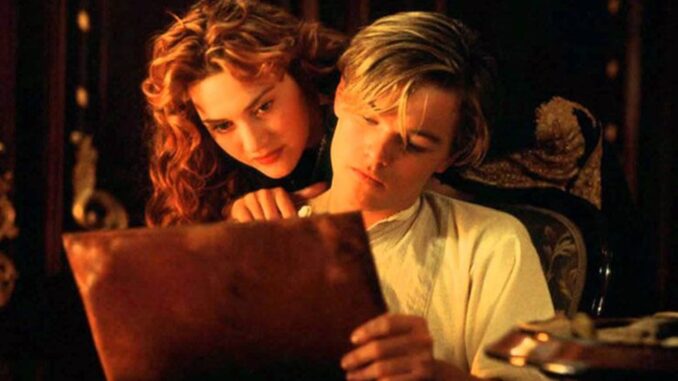
The Logistical Lifeboat of Regret: James Cameron and the Ghost of Jack Dawson
For decades, the question has haunted moviegoers, fueled furious debates, and launched a thousand memes: Could Jack Dawson, the tragic romantic hero of James Cameron's Titanic, have survived? Could he have clambered onto that infamous floating door, sharing Rose’s icy sanctuary and ultimately breathing his last in a hospital bed rather than the unforgiving embrace of the Atlantic? For years, James Cameron, the architect of this cinematic tragedy, staunchly defended his artistic decision, citing physics, dramatic necessity, and the sanctity of Rose’s character arc. Now, imagine, if you will, a hypothetical world where the director, finally succumbing to the relentless tide of public opinion, does admit Jack might have survived. The reverberations would be seismic, shattering the carefully constructed mythology of the film and forcing us to re-evaluate not just the ending, but the entire narrative.
The initial impact would be a collective gasp of disbelief, followed by a cacophony of reactions. Die-hard fans, those who had defended Cameron’s artistic vision for years, would feel betrayed, their loyalty dashed against the rocks of a newfound narrative uncertainty. The meme-makers, on the other hand, would enter a golden age. The internet would be flooded with satirical images: Jack and Rose sharing a cozy breakfast on the door, a CGI Jack awkwardly photoshopped into retirement homes, and perhaps even a sequel pitch featuring a grizzled, PTSD-stricken Jack battling icebergs with a grappling hook.
But beyond the surface-level chaos, Cameron’s admission would force a deeper examination of the film itself. Suddenly, the meticulously crafted tragedy would be tinged with a potent dose of regret. The sacrifice, once viewed as noble and inevitable, would now appear avoidable, perhaps even careless. The heroism of Jack’s selfless act would be diminished, replaced by the gnawing feeling that a different, less dramatically satisfying, outcome was possible.
Imagine the implications for Rose's character. Her entire life, shaped by the memory of Jack’s sacrifice, would be cast in a new light. Was she truly saved by his noble act, or was she simply more resourceful, more determined to survive? The romantic ideal of the "star-crossed lovers" would be replaced with a more pragmatic, and perhaps less inspiring, story of survival in the face of catastrophe. The film's central message – the power of love and sacrifice in the face of adversity – would be muddied, replaced by a lingering question: What if?
Furthermore, such an admission would spark a renewed debate about the role of the director in shaping our understanding of a story. Are directors infallible gods, whose vision must be obeyed without question? Or are they simply storytellers, whose decisions can, and perhaps should, be challenged and re-evaluated in the light of new information and evolving perspectives? Cameron's initial staunch defense of Jack's death, rooted in his belief in its dramatic necessity, highlights the tension between artistic vision and audience expectations. His admission, however belated, would acknowledge the power of the audience to shape the narrative landscape.
Finally, and perhaps most profoundly, Cameron’s hypothetical confession would force us to confront our own relationship with tragedy. We are drawn to tragic stories, perhaps because they allow us to confront our own mortality, to grapple with the inevitability of loss. By admitting that Jack could have survived, Cameron would be acknowledging the messiness of reality, the fact that survival is often a matter of luck and circumstance rather than heroic sacrifice. He would be disrupting the comforting narrative of tragic inevitability, reminding us that sometimes, the only thing separating life and death is a bit of buoyancy and a shared plank of wood.
In conclusion, while James Cameron has consistently defended his artistic choices regarding Jack Dawson’s demise, a hypothetical admission that he could have survived would be more than just a retraction. It would be a cultural earthquake, shaking the foundations of the Titanic mythos and forcing us to re-evaluate the film, its characters, and our own fascination with tragedy. It would be a testament to the power of collective imagination, a reminder that even the most meticulously crafted narrative is ultimately subject to the enduring power of "what if." And perhaps, most importantly, it would be a logistical lifeboat of regret, carrying the ghost of Jack Dawson back into the realm of possibility, forever changing the course of the Titanic story.